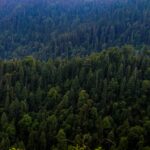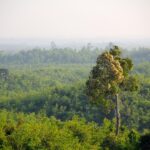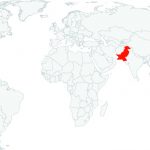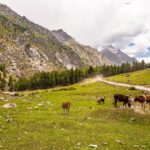
Large-scale illegal chopping of trees across multiple villages of Jand town in Attock continues unabated, as forest authorities and the local administration appear unable to curb the activities of an organised timber mafia.
Sources said that for the last couple of months, truckloads of freshly cut timber have been transported under cover of darkness to markets in Kohat, Swabi, Peshawar and other cities. Villagers often wake to find fresh stumps where mature acacia and keekar trees once stood. Permit fees and penalties remain too low to effectively deter illegal felling and transport.
Chief Minister Khyber Pakhtunkhwa Sohail Afridi on Tuesday directed strict action against illegal tree cutting across the province, emphasizing a zero-tolerance policy towards those involved in deforestation and timber smuggling.
Afridi also directed all relevant departments to identify gaps in existing laws and submit new proposals to make legislation for the protection of forests and wildlife more effective.
Pakistan has lost 18% of its forest area since 1992, with forest cover declining from 3.78 million hectares to 3.09 million hectares by 2025, and continues to lose around 11,000 hectares annually. Khyber Pakhtunkhwa (KP) has seen the largest share of this decline, driven by illegal logging, timber mafias, overgrazing, and mismanagement. Weak enforcement and official complicity have allowed deforestation to continue, particularly in areas like Chitral, Swat, and Kalam.
Experts point to systemic governance failures as central factors: lack of accountability for officials, poor wildfire management, absence of effective grazing controls, and insufficient watershed protection. They stress the need for stronger monitoring systems using satellite and local data, community-based restoration, and promotion of alternative fuels to reduce dependence on forests. Calls have been made for a national emergency response, with dedicated fire-fighting units in mountain districts and coordinated action against the entrenched timber mafias fueling illegal deforestation.
The National Assembly’s Standing Committee on Human Rights was given a grim briefing on human trafficking on Tuesday, revealing that around 10,000 Pakistanis are currently trapped in the forests of Cambodia and Burma. These victims of organized human trafficking networks are reportedly being forced into illegal logging, agricultural labour, and drug trafficking.
The Pakistan Furniture Council (PFC) has called for urgent cohesive measures to protect the Murree forests from the devastating impacts of the timber mafia and recurring wildfires. The council urged the government to strengthen monitoring mechanisms, enforce stricter penalties for illegal logging, and invest in modern firefighting equipment to combat wildfires effectively.
The Anti-Corruption Establishment (ACE) Khyber Pakhtunkhwa has arrested eight people including senior officer and staff of the Forest Department in connections with illegal logging and the timber mafia in Manshera. The ACE inquiry uncovered large-scale illegal logging in the forests of Manshera, implicating Forest Department officers and staff in aiding the timber mafia.
Wajid Ali Khan, former Khyber Pakhtunkhwa Environment Minister, has referred to the devastating effects of the illegal timber trade in the region, noting that the forests of Upper Swat, particularly those populated with pines and deodar trees, have been severely depleted by the timber mafia’s unchecked activities.
“The roots of this crisis can be traced back to an irrational decision to allow private forest owners to cut down trees under the wood lot law. While this policy was initially intended to manage forest resources, it inadvertently opened the floodgates for illegal logging in both private and state-owned forests. The timber mafia capitalized on this, exacerbating the destruction.”
The National Forest Policy 2015 has revealed that Pakistan’s total forest-covered area was only five percent, and the country was losing about 27,000 hectares of forests per year, mainly occurring in private and community-owned natural forests in KP and Gilgit Baltistan
The article focuses on the management of more than 6 million square metres of timber, worth billions of dollars in the Hazara and Malakand regions in Pakistan’s northwest, which borders Tailban-controlled Afghanistan. The region produces a range of quality timber of hardwood species, including shisha, walnut, oak and ash.
Last October, Wood Central revealed that forests located in the Afghan-Pakistan corridor were fueling a booming trade in conflict timber for decades – with smuggled timber railway ‘sleepers’ exported from Pakistan. Like Afghanistan, Pakistan participates in China’s Belt and Road Initiative, with regional exports ending up in Chinese supply chains and exported into global markets.
Changa Manga is the largest man-made forest in Pakistan, covering an area of 12,560 acres and boasting a great diversity of plants and animals. This forest produces some of the finest timber in the world. Its favorable location includes a park that provides opportunities for recreation and relaxation amidst the forest.
However, this forest has been facing illegal logging for many years, which poses a danger to our society and wildlife. Several reasons contribute to this problem. Politically influential individuals disregard laws and cut down the forest for their own needs.
Click here to access the Global Illegal Logging and Associated Trade (ILAT) Risk assessment tool and to download the Forest Trends User Guide describing the functionality of the ILAT Risk Data Tool.
Click here to access the Cattle Data Tool.







